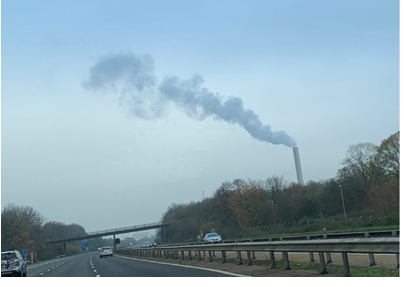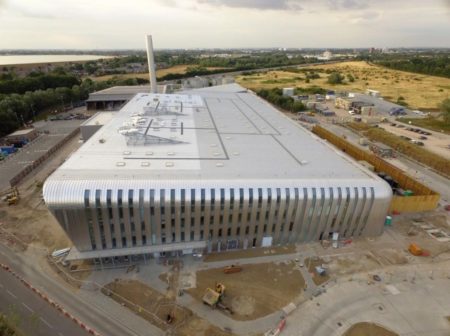The county’s approach is seen as potentially heralding the end of the era when local authorities issued long-term contracts of up to 25 years.
Suez currently holds a 25-year integrated PFI waste disposal contract with the council, due to expire in September 2024 and worth £64 million each year.
Surrey has proposed to “disaggregate” the contract into several shorter lots, including residual waste, food waste, kerbside dry recycling, household waste recycling centre (HWRC) and transfer station operation, garden waste, street cleansing waste, and bulky, fly-tipped, and hazardous waste.
A report which went before the council’s communities, environment and highways select committee on 8 March says this option would open the services to greater competition.
Surrey says there are “very few” contractors who would be able to deliver all aspects of an integrated contract, while it claims smaller contracts “underpinned by less complex commercial models” should improve transparency.
A spokesperson for Surrey told letsrecycle.com: “We are not intending to develop new infrastructure under the forthcoming procurement and therefore [have] no need to repay capital through uplifted costs over a range of different services.
“Also, the first phase of market engagement suggested that disaggregation would deliver better value.”
Procurement is expected to begin in September 2022, with final business cases going before Surrey’s cabinet between July and September 2023 prior to the deals being awarded.
PFI contracts
In October 2018, then-chancellor Philip Hammond announced that the government would no longer use PFI, which came to prominence in the late 1990s and early 2000s. PFI contracts would typically last for 25 to 30 years.

John Woodruff is principal consultant in waste management at consultancy Ricardo Energy & Environment. He told letsrecycle.com that PFI contracts were usually awarded around the building of facilities, such as energy from waste plants, material recycling facilities, and mechanical biological treatment plants.
Mr Woodruff said PFI contracts such as these would have to last a long time to make the capital investment in infrastructure worth it.
Now, he said, as these 25-year deals come to an end, councils have flexibility to explore alternative options.
And, he said, uncertainty around the Resources and Waste Strategy, particularly around new burdens funding and the timescales for extended producer responsibility for packaging, meant councils were looking to shorter-term deals.
“Back then, councils would award 25-year deals to make the capital investment sensible,” he said. “What’s happening now is down to the uncertainty around the Resources and Waste Strategy.”
Factors
Alan Potter is a waste regulation and planning specialist at BPP Consulting. He suggests Surrey’s move away from longer contracts could be down to three factors.

The first, he said, was “the historical desire to transfer risk to the private sector”, particularly in the face of the now defunct Landfill Allowance Trading Scheme (LATS). Under the LATS, local authorities could face fines of up to £150 per tonne of biodegradable waste landfilled over their allocated allowance under diversion targets.
“Now there is a greater sense of certainty about future policy direction the unknowns are less, plus the options for landfill diversion are greater so risk is reduced,” he told letsrecycle.com.
Mr Potter believes the second factor is that many councils are now in an “improved position” to deliver waste collection services inhouse.
And, he suggested Surrey’s “ongoing difficulties” with the much-delayed Eco Park at Shepperton, which Suez is building, may have played a role in the decision.
The council is currently in a legal dispute with Suez over delays to the Eco Park, a collection of facilities which comprises a 40,000 tonnes per year capacity anaerobic digestion (AD) plant and a 56,000 tonnes per year capacity gasification plant, together with a recyclable bulking facility and community recycling centre (see letsrecycle.com story).
Market engagement
For its future approach, Surrey county council told letsrecycle.com it undertook an initial engagement exercise in the summer of 2021 to gauge waste management companies’ “appetite” for the disaggregated deals and to seek guidance on market preferences.
A second phase of engagement is currently underway. Having begun on 11 February, this takes the form of a questionnaire which companies must hand in by 21 March.
The council will then hold face-to-face Teams calls with the interested companies in the week beginning 28 March.
Procurement
The report suggests the council would not have the “resources or expertise” to deliver any of the services in-house.
As well as the soft market testing, the report says there has been “significant engagement” with Surrey’s district and borough councils to ensure future arrangements enable efficient working between disposal and collection activities.
The feedback from this engagement, which included a desire to reduce wait times at transfer stations, will be incorporated into the contract specification, Surrey says.
The communities, environment and highways select committee expects to outline the business case for procuring the new contract to Surrey’s cabinet for approval by May.
Surrey
Representing an estimated population of nearly 1.2 million, Surrey county council had a household waste recycling rate of 55.1% in the 2020/21 financial year.

In total, Suez manages approximately 500,000 tonnes of waste each year on behalf of the council.
At the AD plant at the Eco Park, food waste is shredded and water is added to develop a slurry, which is pasteurised using heat from the gasification facility. The slurry is then fed into two digester tanks where the material is processed for 18 days, prior to adding air to kill off the microbes. After that, it is centrifuged to separate the digestate, which is transported to end markets and farms.
At the fluidised bed gasification facility, materials undergo a pre-treatment stage to produce a type of refuse derived fuel. This element of the Eco Park is the source of Surrey’s legal dispute with Suez.









Subscribe for free